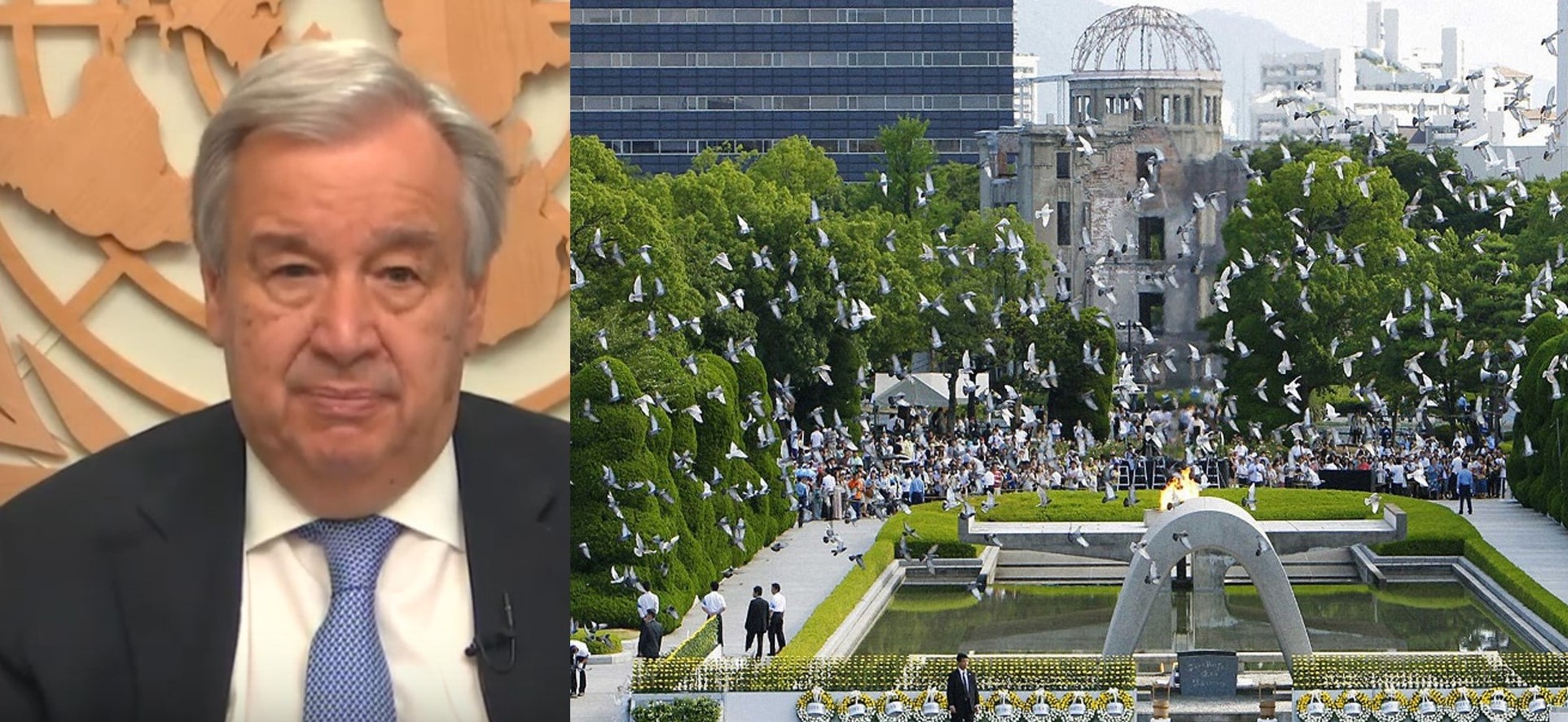I am honoured to greet the Peace Memorial Ceremony and to pay tribute to the victims of the atomic bombing of Hiroshima.
Seventy-five years ago, a single nuclear weapon visited unspeakable death and destruction upon this city.
The effects linger to this day.
This city and its people, however, have chosen not to be characterized by calamity, but instead by resilience, reconciliation and hope.
As unmatched advocates for nuclear disarmament, the hibakusha have turned their tragedy into a rallying voice for the safety and well-being of all humanity.
The birth of the United Nations in that same fateful year of 1945 is forever intertwined with the death rained down on Hiroshima and Nagasaki.
Since its earliest days and resolutions, the Organization has recognized the need to totally eliminate nuclear weapons.
Yet, that goal remains unachieved.
Seventy-five years is far too long not to have learned that the possession of nuclear weapons diminishes, rather than reinforces, security.
Today, a world without nuclear weapons seems to be slipping further from our grasp.
The web of arms control, transparency and confidence-building instruments established during the Cold War and its aftermath is fraying.
Division, distrust and a lack of dialogue threaten to return the world to unrestrained strategic nuclear competition.
States possessing nuclear weapons are modernizing their arsenals and developing new and dangerous weapons and delivery systems.
The risk of nuclear weapons being used, intentionally, by accident or through miscalculation, is too high for such trends to continue.
I repeat my call for States to return to a common vision and path leading to the total elimination of nuclear weapons.
While all States can play a positive role, the countries that possess nuclear weapons have a special responsibility.
They have repeatedly committed to the total elimination of nuclear weapons.
Now is the time for dialogue, confidence-building measures, reductions in the size of nuclear arsenals and utmost restraint.
We must also safeguard and strengthen the international non-proliferation and disarmament architecture.
States will have an opportunity to return to this shared vision at next year’s Review Conference of the Treaty on the Non-Proliferation of Nuclear Weapons.
The Treaty on the Prohibition of Nuclear Weapons is a further pillar of the disarmament regime, and I look forward to its entry into force.
The entry-into-force of the Comprehensive Nuclear-Test-Ban Treaty also remains a top priority in order to entrench and institutionalize the global norm against nuclear testing.
This commemoration takes place in the shadow of the COVID-19 pandemic, which has brought turmoil into our lives in so many ways.
The pandemic has also exposed so many of the world’s fragilities, including in the face of the nuclear threat.
The only way to totally eliminate nuclear risk is to totally eliminate nuclear weapons.
Young people have an important role. They – and civil society as a whole — have proved their power time and again in support of the cause of disarmament.
We should listen to their ideas and give them the space to make their voices heard.
The United Nations and I will continue to work with all those who seek to achieve our common goal: a world free of nuclear weapons.
Thank you.

